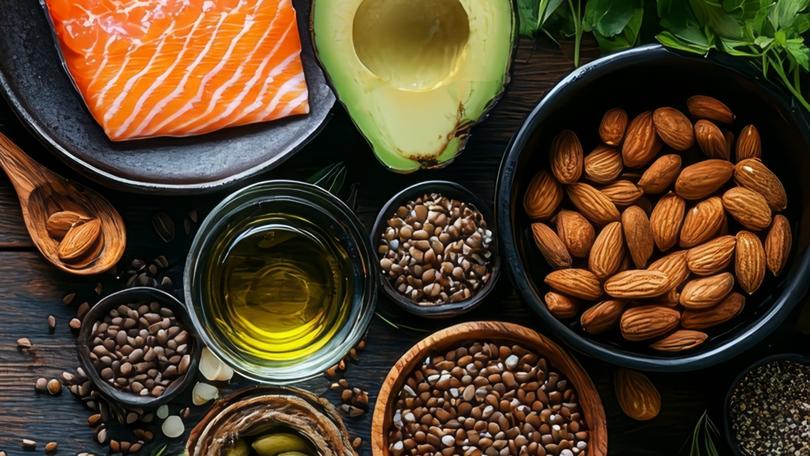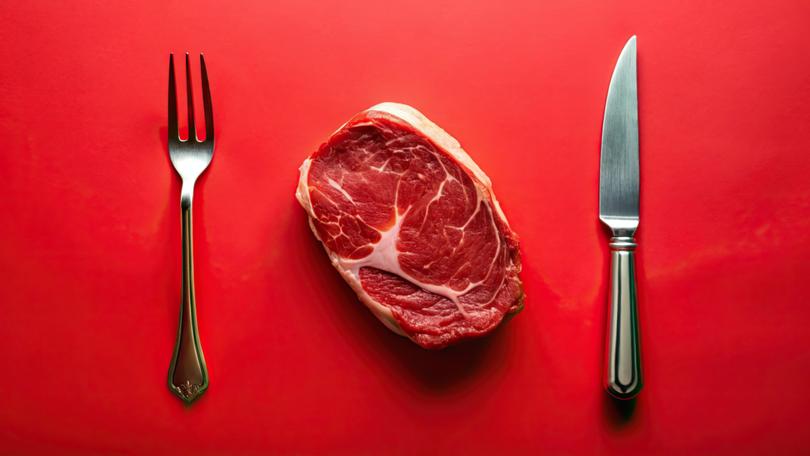SARAH DI LORENZO: Now it’s OK to make friends with fat, it’s no longer the enemy of a healthy diet
SARAH DI LORENZO: For years it was the enemy of a healthy diet, but it turns out we were wrong about fat.

After years of the low fat high carbohydrate diet obsession we finally worked out it was completely wrong. For so many years fat was considered the bad guy.
You can trace back to the 1950s-80s when there was a fear that fat was linked to heart disease. The belief was that all fats and definitely saturated fat caused heart disease and raised cholesterol.
I think everyone over the age of 50 would have to fully remember the fat fear mongering that went on, I certainly do.
Sign up to The Nightly's newsletters.
Get the first look at the digital newspaper, curated daily stories and breaking headlines delivered to your inbox.
By continuing you agree to our Terms and Privacy Policy.What people and researchers started to notice was that people who had high fat diets like in countries such as France also had a low incidence of heart disease and we slowly started working out the health advice was wrong.
The government dietary guidelines around 1970–90 were for people to eat more carbohydrates and cut back fat intake. So many food brands jumped on this bandwagon and were removing fat from foods and replacing them with sugar and refined carbohydrates which is where we are seeing diabetes and obesity starting to increase rapidly.
This then started the rise of low fat and fat free products and they were all marketed at good health, which is so far from the truth. The naturally occurring fat that helps keep us full was replaced with sugar, refined carbohydrates and artificial sweeteners increasing the computation of processed foods, more calories and far worse for general health leading to risk of chronic disease.
Saturated fats in particular became demonised and were linked to elevating cholesterol. Over time more research came about and there was now the difference between cholesterol from LDL (bad) and HDL (good) for protecting the heart and now saturated fat needs to be moderated and is now known not to be the only cause of heart disease.
The real problem lies in the sugar and processed carbohydrates, these are the problem and what drives obesity, heart disease and type 2 diabetes. All the rapidly risking obesity statistics started at the same time as the fat free / low fat and high carbohydrate diets.
We now know that not all fats are bad. Fat is actually one of our very important macro nutrients for energy, overall health, supporting brain function and vitamin absorption.
So here is the breakdown of fats. The good fats are the ones that are essential for our health providing nutrients that support our body and especially our heart. Unsaturated fats, the healthy fats help lower the bad cholesterol and increase the good, they include monounsaturated fats found in olive oil, avocado, nuts and seeds that help with weight management, heart health and are anti inflammatory.

Next we have Polyunsaturated fats, which are found in fatty fish, walnuts, flaxseed that are good for lowering bad cholesterol, brain health and overall cell functioning. Omega 3 fatty acids found in salmon, walnuts, chia and flaxseed are linked to lowering risk of heart disease, reduce inflammation and help boost our brain health. Omega 6 fatty acids are like Omega 3 essential for us to get from our diet and are found in vegetable oils and nuts helping with brain function, growth and energy.
The fats that are harmful to our health are ones that increase cholesterol, inflammation and are linked to type 2 diabetes, obesity and heart disease. They include saturated fats that need to be consumed in moderation found in red meat, cheese, coconut oil and some processed foods, there is no need to completely avoid them, rather just keep your intake low.
The other bad fats are trans fats that need to be completely avoided, they can be found in some margarines, some packaged snacks, some processed foods and some fast foods. They are heavily regulated now. They are linked to increased risk of heart disease and are inflammatory.

Fats play such an important role in our health, they are essential to be a part of a healthy balanced diet. We need fats for energy, brain function as our brain is 60 per cent fat and the good fats are needed for mood, cognitive function, feeling satiated and memory. As well for absorption of fat soluble vitamins like A, E, D and K and hormone production including testosterone and estrogen. Fats are also needed for the structure and function of our cell membranes so needed for growth and repair.
The key is to have choose mostly unsaturated fats, minimise saturated fats and avoid trans fats. Not forgetting good fats are also delicious!
